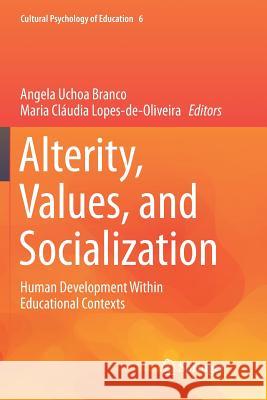Alterity, Values, and Socialization: Human Development Within Educational Contexts » książka
topmenu
Alterity, Values, and Socialization: Human Development Within Educational Contexts
ISBN-13: 9783319889504 / Angielski / Miękka / 2018 / 224 str.
Kategorie:
Kategorie BISAC:
Wydawca:
Springer
Seria wydawnicza:
Język:
Angielski
ISBN-13:
9783319889504
Rok wydania:
2018
Wydanie:
Softcover Repri
Ilość stron:
224
Waga:
0.35 kg
Wymiary:
23.39 x 15.6 x 1.32
Oprawa:
Miękka
Wolumenów:
01
Dodatkowe informacje:
Wydanie ilustrowane











